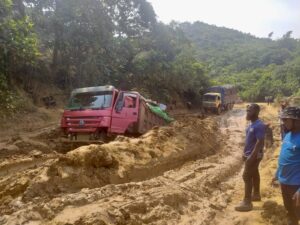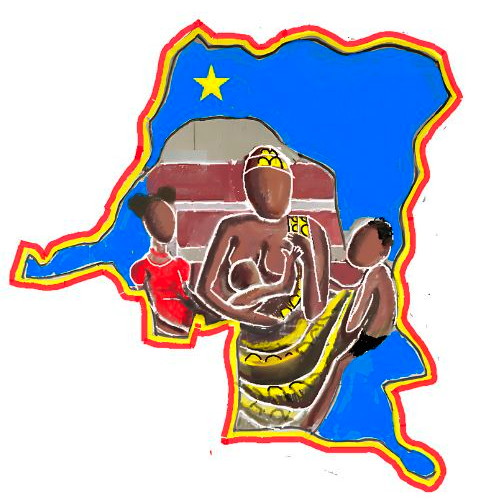Mwenga, 08/28/2024
Finally, on August 20, the first group of 18 children arrived, mostly loaded on 5 motorcycles from Kamituga (the rains have begun and the road has already become impassable for minibuses)!

The work of preparing the home was very long, due to numerous unforeseen events and obstacles, but even more difficult was the process of selecting children.
It was not easy, after long listening and careful observation of the context where the child lived, to say no to someone, and at the same time to understand (especially in the case of younger children) which children will really benefit from our intervention and not risk feeling uprooted from the environment in which they lived.

Five children we retrieved from the road, one of them, perhaps the youngest (he does not know his age) found during a visit to the artisanal gold mines surrounding Kamituga.
He immediately followed us and stayed with us.
Three of them we found on the street at night playing improvised instruments out of bottles and plastic containers.
The locals called them “les musiciens de la nuit.”

Other children, orphaned or abandoned, we recovered from situations of obvious neglect, or great misery.
Three siblings (Justine, Justin, and Julie, ages 13, 10, and 7), had been living alone in a shack for some time.
Justin has psychomotor retardation, possibly as a result of cerebral malaria, and spent his days sitting in a corner: it was enough to give him some attention and affection, for him to start laughing and speaking in his own language.
The beginning was very difficult, the children turbulent, problematic, all in need of attention, but also full of vitality, especially the street children who have a great deal of creativity, manual dexterity, improvisational skills.
One morning they took the ladder, opened a trapdoor in the ceiling and climbed in to hunt bats that had long since completely colonized it, creating a large problem because of the droppings constantly falling out of the cracks. We did not know how to chase them away, but it was enough for the children to climb on top of them a few more times for them to escape. We appreciated less the fact that there was no way to stop them from lighting a fire in the garden and roasting the poor retrieved critters, under the disgusted eyes of the cook (and mine)…..Two of them escaped early one morning, to return to Kamituga, leaving us very sad, because they seemed to be the children who had been best integrated into the group, one of them, Dani, so happy to play the drum and take care of a little one. Two days later, at night, when the other children had already gone to sleep, in the rain, they walked back from Kamituga soaking wet, taking with them another street child, Heritien, whom we already knew and would have liked to take with us, but had run away at the last moment, and two boys (17-18 years old, but much smaller in appearance), also from the street, who did not fit our inclusion criteria because of their age. We were faced with the dilemma of what to do with them. We did not have the courage to send them away. Listening to their stories was, once again, touching. From these stories often emanates a sense of abandonment, of the unspoken, of shame: the hurt resulting from feeling rejected or abandoned is often too great to be expressed in words. They told us that they came to us because they want to study and learn a trade. One of them cannot even write his own name. It moves us to see the attention with which they also participate, along with the young children, in the school preparation classes taught by Angelo, our educator. We have decided that they will stay with us for the time being, while we try to find, possibly in Bukavu, a center that can offer them training in a trade, which unfortunately we cannot offer yet. But these are not easy situations and they will come up again. During our stay in Kamituga for child selection, with Dr. Darock we gave a lot of thought to what to do with the boys and girls over the age of 14 who have dropped out of school and who are most likely to will end up in mine work and often in prostitution, which is very common in that environment.
We realized the great need to create there a center for training in the trades (carpentry, sewing, handicrafts etc.) for these boys/girls, and we count one day not too far away to be able to realize it.

In the meantime, we need to continue the recruitment process, which will be an ongoing activity, because we still have space, but also because some children may decide to go back to where they came from, while others we will try after a year of schooling to reunite them with their families.
It’s a lot of work, but little by little the children are beginning to learn the rules, to stick to schedules, to keep order, to have a little more respect for objects, (initially everything ended up in their mouths or quickly destroyed by their rough handling) and the bonds between them are solidifying little by little… And above all, they seem happy to be here.
A warm greeting to everyone and a heartfelt thank you for your valuable support and for believing that the realization of this project was possible!
Ilaria




